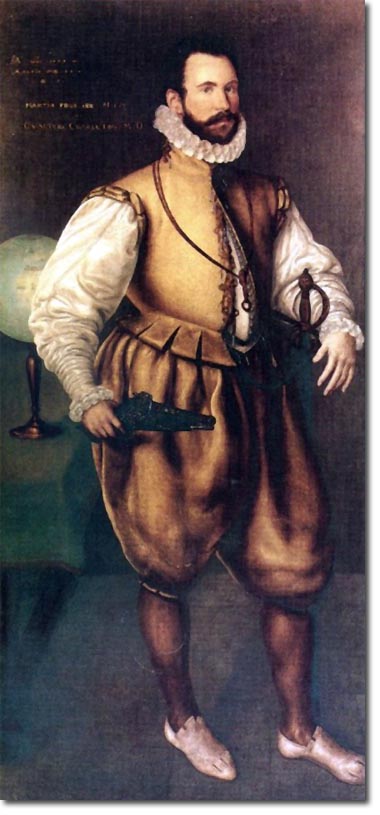|
|


|
|
Martin Frobisher had many connections with Plymouth. His first connection to the city seems to be in 1571 when he was fitting out a ship to be used against privateers operating out of Ireland. But it is his voyages from Plymouth to attempt to discover the North West Passage that made him famous during his day. The fact that his expeditions brought back the first inuit and mysterious stones that he claimed had gold within them, elicited huge excitement back in England. Frobisher also joined with his old friend Francis Drake in his 1585 voyage to the West Indies and again during the Spanish Armada. Although he did fall out with Drake over Drake's unauthorised seizure of the Rosario. Martin Frobisher was also to die in Plymouth after receiving a wound in 1594 whilst attempting to fight against the French and Spanish who were combining forces in a Catholic alliance aimed at England. He personally led a force of English mariners and soldiers against the a Spanish fortress. In hand-to-hand combat Frobisher received a pistol wound in the thigh. The ball was removed by a field surgeon, but wadding from the charge remained in his body. Following the allied victory the English fleet returned to Plymouth. There, on 22 November 1594, Frobisher died from a gangrenous infection of his lower body. His entrails were buried the following day in the churchyard of St Andrew's, Plymouth, and his cadaver brought to London, where it was buried in the south aisle of St Giles Cripplegate.
Further Reading: Martin Frobisher: Elizabethan Privateer |
Empire in Your Backyard: Plymouth Article | Significant Individuals
Armed Forces | Art and Culture | Articles | Biographies | Colonies | Discussion | Glossary | Home | Library | Links | Map Room | Sources and Media | Science and Technology | Search | Student Zone | Timelines | TV & Film | Wargames